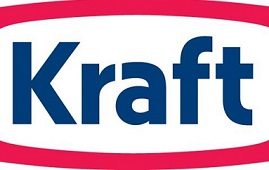
Kraft-Heinz has dropped its attempt to purchase Unilever with surprising speed.
Not only did Unilever dismiss the offer of a mix or shares and cash estimated to be worth £115bn out of hand but Kraft-Heinz is reported to have received a hostile response from politicians in both the Netherlands and the UK, with the latter coloured by Kraft’s behaviour in the take-over of Cadbury-Schweppes.
However, those within and supplying the consumer packaged sector should not think the action is over and that things will return to normal. The bid is an important signal of change.
The existence of a company such as Kraft-Heinz is symptomatic of a consumer packaged goods (CPG) sector that is short of growth. It is the product of a string of acquisitions and divestments whose objective was to create a company with economies of scale that could squeeze value out of brands that were perceived to be old, with poor levels of growth and profit. It is worth noting that it is heavily exposed to the American market. It also is notable for having as its dominant share-holders an alliance between the Brazilian investment company 3G Capital and Warren Buffett’s Berkshire Hathaway. 3G has built its investment reputation on very aggressive cost-costing in the companies that it buys, with logistics operations being a particular area for attention. It is hard not to think that Kraft-Heinz’s clear intention was to do the same with Unilever.
Despite the failure of the Kraft-Heinz bid there is still much muttering about mergers and rationalisation in the CPG sector. The implications for logistics service providers are obvious. The urgent need for short-term improvements in profit margins will quickly feed back into cost reductions in the logistics budget. Ambitious plans for focussing on CO2 reductions or similar ideas are likely to be abandoned quickly.
However, it is dangerous to leap to the conclusion that there is now growth in the CPG sector. The great attraction of Unilever is its strong position in India and other emerging markets. Its recent results were disrupted by volatility in these over the past year, but the longer-term outlook remains good. The challenge here is to create a logistics capability that can exploit such potential.
The CPG sector then looks to be pointing in two directions at the same time. Mature markets in developed economies but continuing potential in emerging ones. The implications for logistics providers serving this sector are still fairly clear.
Source: Transport Intelligence, February 21, 2017
Author: Thomas Cullen